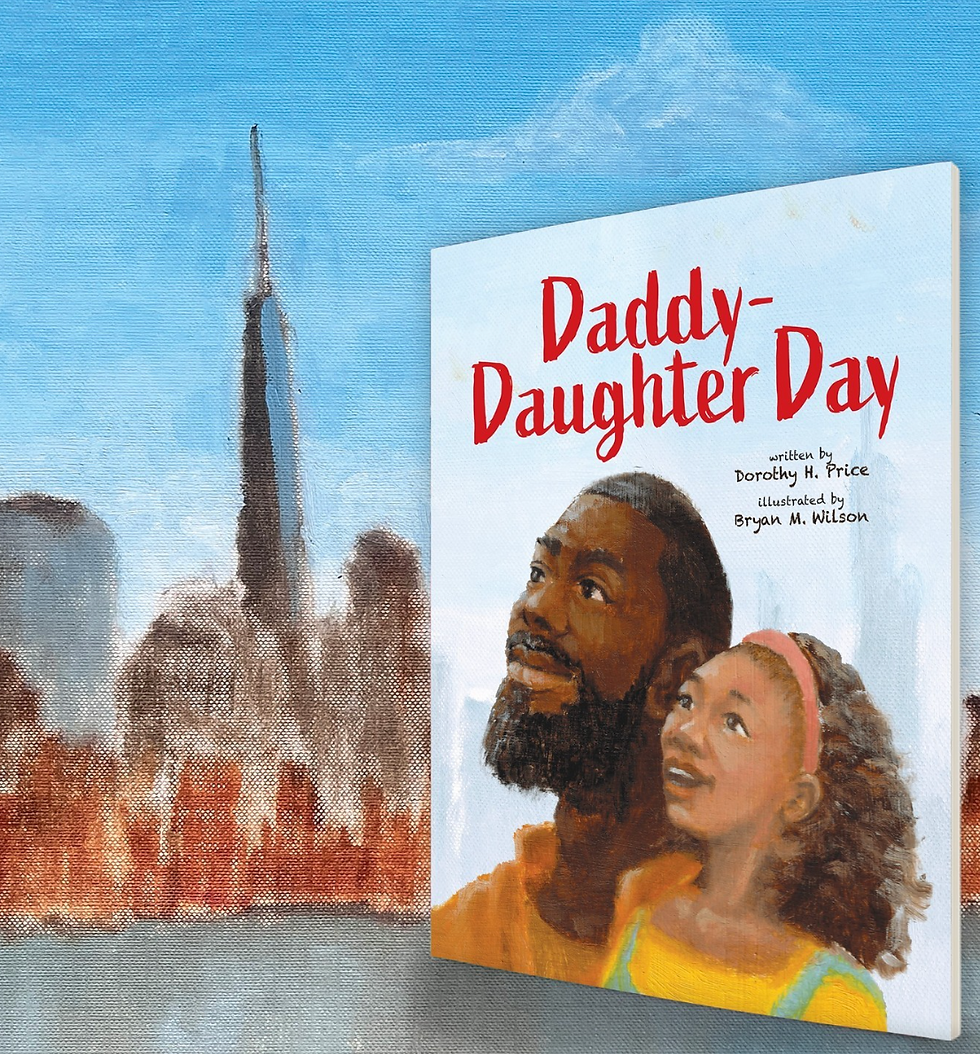Total Recognition with Bryan Wilson
- Alexandra Smith
- Aug 21, 2025
- 4 min read
Updated: Dec 18, 2025

Bryan Wilson’s creative life as a Charlotte-based painter, educator, and illustrator, is devoted to documenting the many layers of Black identity. His paintings explore the weight and beauty of Black masculinity, the tension between strength and vulnerability, and other dualities that live within the Black man. By foregrounding these stories, he seeks to record the history our society tends to leave behind.
To Bryan, portraiture is a process of intimate recognition. It’s a “deeper type of study,” he explains. “A perception of one’s essence that can only be had in person.” With that comes both the privilege and the responsibility of seeing someone for exactly who they are.
His portraits are steeped in both classical technique and contemporary themes of vulnerability, care, and resistance. Bryan uses them to back against monolithic representations, insisting on the full complexity of his subjects. They “draw attention to the overlooked, offering viewers a space for reflection and dialogue,” he says.
Bryan describes himself as a creative anthropologist, painting portraits of humanity through an ethnographic lens. Ethnography, as he explains, is a method of "deep observation and storytelling" that captures the lived experiences of a group of people, "from the inside out." Usually, records consist of field notes, photographs, and video. But Bryan comes prepared with a paintbrush.
The work he does revolves around “preserving, documenting, and uncovering certain cultural connections.” And it feels more critical than ever. With the expansion of digital technology comes a steep decline in physical media. From an archeological perspective, what will remain of us? Don’t we all have family, friends, and moments that deserve to take up space?
These themes are clearly conveyed through his portraits on display in Chop Shop: We Are Here. The exhibition, up now at the Harvey B. Gantt Center through October 26, is a collective exploration of racial consciousness and identity through art. Founded in 2020, The Chop Shop Artists Collective was born of grief and solidarity in the wake of George Floyd’s murder. Many members, like Bryan, are educators who recognize art's power to inform and inspire.
Bryan also recently completed his first big illustrating project with a publishing company, resulting in the adorable 32-page children’s book Daddy-Daughter Day, by local author Dorothy H. Price. The connection came through longtime friend Gordon C. James, an award-winning illustrator who encouraged Bryan to step further into the field and introduced him to the right collaborators. “The rest was history,” he says.
Children’s publishing runs on a long timeline. The manuscript is finalized, templates are provided for each spread, sketches are submitted and revised, then finally, paintings begin. Bryan worked in oil paint on illustration boards, painting each page to scale (8x10 inches). For over a month straight, after full days of teaching, he clocked evening sessions at his easel, slowly building the warmth and tenderness that would come to define the book’s visual tone. “Once I submitted, they loved what I was doing,” he says. “I was fortunate not to have to rework anything.”

In Daddy-Daughter Day, Bryan approaches fatherhood with the same ethnographic attention that guides his fine art practice, lingering in the tender, in-between moments as a father brings his daughter through Harlem to where he was born. Their stop at the Schomburg Center for Research in Black Culture connects the reader to our past and grows the cultural archive Bryan is building across mediums. It’s not only a wonderful affirmation of the everyday beauty of Black family life, but an introduction to important historical figures like Katherine Johnson, Wilma Rudolph, and Ruby Bridges.
Despite museum exhibitions, portrait commissions, and publishing credits, Bryan’s most important work in my view, takes place in the classroom. Northwest School of the Arts is the only public arts magnet high school in the Charlotte-Mecklenburg Schools system. Students must pass an audition to be eligible for a spot, and upon acceptance, they choose from majors like Band, Dance, Costume Design, and Visual Arts.
There Mr. Wilson teaches AP Art and Design, Media Art, and advanced Drawing and Painting courses. He proudly watches students gain admission to top art schools like RISD, Pratt, and Parsons. This is Bryan's eleventh year at NWSA, and he's celebrating twenty-two years of being an educator.

He pushes himself professionally so that he can be a better mentor. “Teaching is one of my core motivations to operate at a high level,” Bryan says. “I take as much of the outside, professional experience, back into the classroom as I can. It makes a difference for the instructor to be a practitioner…we can teach with more nuance and passion.”
So after two decades of teaching and a lifetime of making, what wisdom does Bryan have to share? Stay true to your objectives. “Know thyself,” he says, and protect that clarity by limiting how much you consume. “Don’t doom scroll so much. Stop comparing yourself. Establish your standard and shoot for that. Carefully curate your influences. And, be confident.”

With clarity and discipline comes balance. Rejections from residencies and grants can be draining, and the administrative side of being an artist sometimes clouds the joy of creating. But Bryan has learned to carve out his own rhythm with daily meditation and three-hour studio sessions a few days a week. “Spending quality time with family and being a sneakerhead helps distract and fill me,” he adds. And he’s big on practicing gratitude. The art of recognition, after all, extends to the self.
You can see a lot more of Bryan's work on his website and follow him on Instagram @bryanwilsonmfa.
By Alexandra Smith





